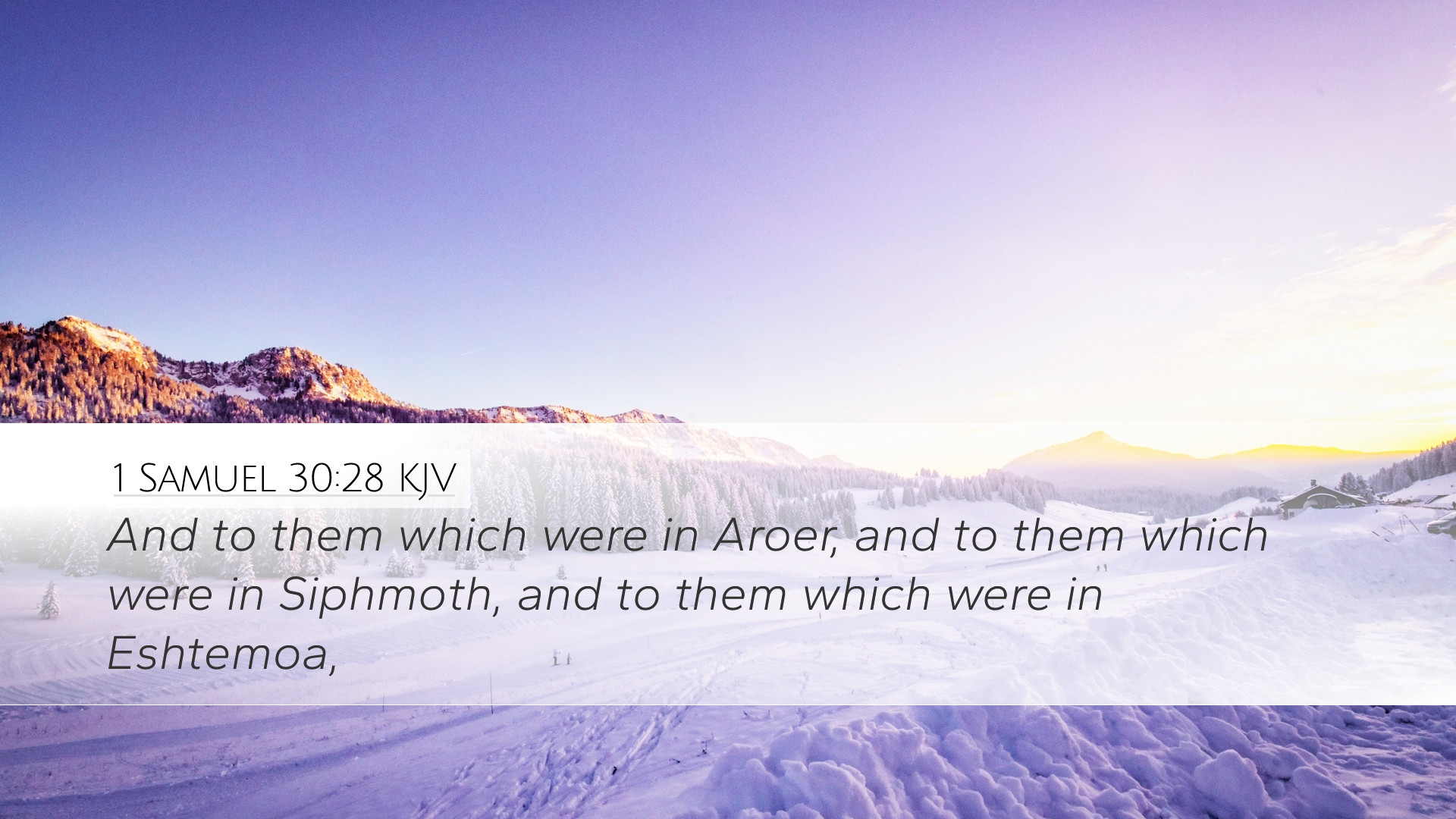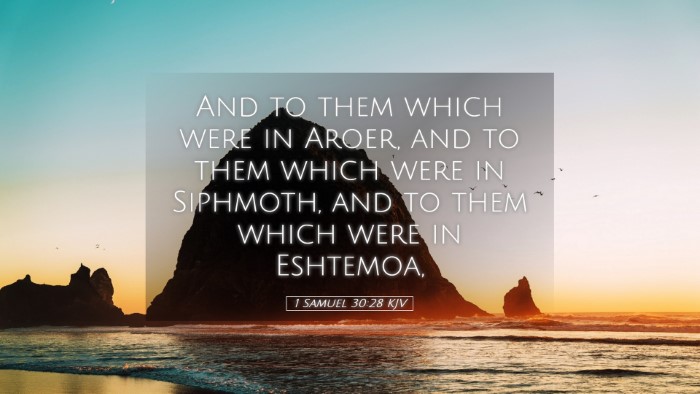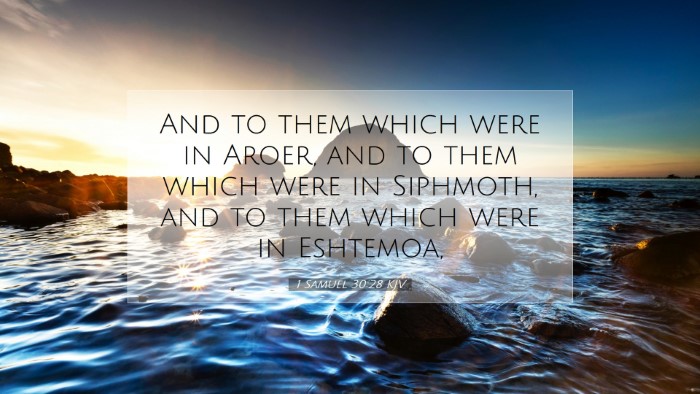Commentary on 1 Samuel 30:28
Verse: "And to them which were in Hebron, and to all the places where David himself and his men were wont to haunt." - 1 Samuel 30:28
Overview
The context of 1 Samuel 30:28 revolves around David’s return from a victorious raid against the Amalekites, who had devastated Ziklag, the city where he and his men were living. This verse reflects David's concern for those in various cities, particularly his loyalty and leadership towards his men and those in the region, which indicates the structure of shared responsibility and the importance of community in David's leadership.
Insight from Commentators
Matthew Henry
Matthew Henry emphasizes the theme of loyalty and the communal spirit of David's leadership. He notes that this verse underscores the importance of recognizing and sharing the spoils of victory, as David not only reclaimed his own possessions but also ensured that those who supported him were remembered.
He observes that David's distribution of the spoils serves as a model for faithful leadership—acknowledging contributions and promoting unity. Henry highlights that David’s actions reinforce the principle that leaders should uplift their followers and regard their welfare seriously.
Albert Barnes
Albert Barnes provides a detailed analysis of the geographical significance of Hebron and the regions mentioned. He points out that Hebron holds historical relevance as the place where David was first anointed king and suggests that David's connection to these regions symbolizes his rightful claim to kingship and his recognition of the broader Israelite community.
Barnes elaborates that in this verse, David is portrayed not as a selfish conqueror, but as a benevolent leader who understands the significance of inclusivity in victory. He indicates that David’s mention of these locations reflects an acknowledgment of those who had been loyal to him and establishes a foundation for future governance based on loyalty and mutual benefit.
Adam Clarke
Adam Clarke brings attention to the concept of remembrance and the social structures within which David operated. Clarke notes that this verse serves as an important reminder that even in times of triumph, leaders are to keep in mind their allies and the foundational bonds that unite communities. He interprets this as a clear mandate for those in positions of influence to foster relationships and maintain a communal ethic among their constituents.
Clarke also emphasizes the importance of context, explaining how David’s military success was a collective triumph, where every involved party should enjoy the fruits. This underscores the biblical principle that victories should not be exploited for personal gain but rather shared to promote solidarity and morale.
Theological Implications
The implications of 1 Samuel 30:28 extend beyond its immediate historical context. The verse serves as a theological reflection on leadership, communal responsibility, and the nature of God's provision. It posits that leaders are not merely individuals of authority but custodians of communal welfare who should lead with recognition of collective effort.
Key Points:
- Leadership and Loyalty: Reflects the essence of leading through service and the importance of loyalty among leaders and their followers.
- Community Recognition: A reminder of the need to recognize contributions of all individuals, establishing a culture of gratitude and communal participation.
- Shared Victory: Establishes the principle that victories are collective, calling for leaders to share the blessings of success.
- Historical Context: David’s actions are rooted in the geography of Israel, reinforcing the relational aspect of leadership within a community.
Application for Modern Readers
For pastors, students, theologians, and scholars, this verse serves as both a challenge and an encouragement. It encourages leaders to reflect on their roles within their communities and to take intentional steps towards inclusivity and recognition of all who contribute to their success.
In practical application, congregational leaders might consider how they communicate appreciation for their members’ roles, ensuring that individuals within their assemblies feel valued and recognized. The principle of shared victory should translate into ministries that promote collective achievement and foster unity.
Conclusion
1 Samuel 30:28 exemplifies critical aspects of biblical leadership and community ethics. The interpretations provided by Henry, Barnes, and Clarke offer rich insights that can guide today's leaders in their stewardship roles. The shared nature of victory and the responsibility of leaders to honor those who support them are timeless truths that resonate deeply in both ecclesiastical and secular spheres.


